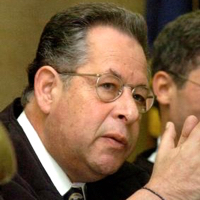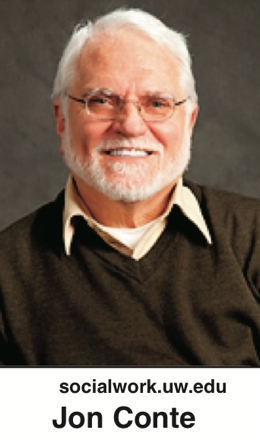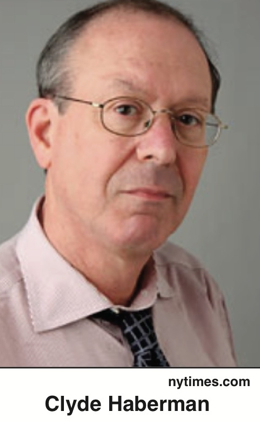Rascals case in brief
In the beginning, in 1989, more than 90 children at the Little Rascals Day Care Center in Edenton, North Carolina, accused a total of 20 adults with 429 instances of sexual abuse over a three-year period. It may have all begun with one parent’s complaint about punishment given her child.
Among the alleged perpetrators: the sheriff and mayor. But prosecutors would charge only Robin Byrum, Darlene Harris, Elizabeth “Betsy” Kelly, Robert “Bob” Kelly, Willard Scott Privott, Shelley Stone and Dawn Wilson – the Edenton 7.
Along with sodomy and beatings, allegations included a baby killed with a handgun, a child being hung upside down from a tree and being set on fire and countless other fantastic incidents involving spaceships, hot air balloons, pirate ships and trained sharks.
By the time prosecutors dropped the last charges in 1997, Little Rascals had become North Carolina’s longest and most costly criminal trial. Prosecutors kept defendants jailed in hopes at least one would turn against their supposed co-conspirators. Remarkably, none did. Another shameful record: Five defendants had to wait longer to face their accusers in court than anyone else in North Carolina history.
Between 1991 and 1997, Ofra Bikel produced three extraordinary episodes on the Little Rascals case for the PBS series “Frontline.” Although “Innocence Lost” did not deter prosecutors, it exposed their tactics and fostered nationwide skepticism and dismay.
With each passing year, the absurdity of the Little Rascals charges has become more obvious. But no admission of error has ever come from prosecutors, police, interviewers or parents. This site is devoted to the issues raised by this case.
On Facebook
Click for earlier Facebook posts archived on this site
Click to go to
Today’s random selection from the Little Rascals Day Care archives….
Click for earlier Facebook posts archived on this site
Click to go to
Today’s random selection from the Little Rascals Day Care archives….
Retirement looms for Rubenstein, who detected scam

phillyburbs.com
Judge Alan Rubenstein
Feb. 26, 2016
“What a waste it would be to force Bucks County (Pa.) Judge Alan Rubenstein from the bench. At 70, he remains sharp and vibrant, a jurist of impeccable credentials with vast institutional knowledge of Bucks County, not to mention historic accomplishments.
“As district attorney, Rubenstein tried more cases than any prosecutor in county history. And he was the only county DA to be elected four times, a measure of how well he did the job and how much voters trusted and appreciated him. Indeed, they rewarded him with a seat on the county bench, a post Rubenstein continues to relish and is in no hurry to relinquish.
“Yet, Rubenstein and every judge across the state faces mandatory retirement at age 70… unless voters extend the mandatory retirement age (to 75)….”
– From “Sound judgment: Too soon to retire,” editorial in the Bucks County Courier Times (Feb. 23) cached here
“No tribute to Judge Alan Rubenstein is complete without mentioning his wise and courageous decision not to pursue charges in the Breezy Point Day School case in 1990…. Countless other prosecutors across the nation fell hard for the ‘satanic ritual abuse’ moral panic, but Judge Rubenstein kept his head, investigated thoroughly and protected Bucks County from the nightmare that befell towns such as Manhattan Beach, Calif., and Edenton, N.C.”
— From my letter to the editor of the Courier Times (Feb. 26)
Unless Pennsylvania voters approve that referendum on the April 26 ballot, Rubenstein’s valuable service will be limited to fill-in duty.
Some septuagenarian judges, of course, should stay retired.
![]()
What? A journal willing to retract?
 March 6, 2014
March 6, 2014
First of three posts
Psychiatric Times isn’t the only professional journal to avoid reexamining the “satanic ritual abuse” era.
Other examples include Nursing Research, Child Abuse & Neglect and Relational Child and Youth Care Practice. The editors of each of these journals turned down my requests to retract their articles supporting and promoting the SRA moral panic.
One editor did offer a glimmer of willingness: Jon Conte at the Journal of Interpersonal Violence.
The road to publication, however, has proved long and bumpy and ultimately – spoiler alert – a dead end.
Here are excerpts from my correspondence with Dr. Conte, who is a professor in the School of Social Work, University of Washington:
Powell (Oct. 30, 2012):
Hello Dr. Conte….
I am an independent researcher and blogger in Charlotte, North Carolina. My goal is to obtain a statement of innocence for the Edenton Seven, the wrongfully prosecuted defendants in the Little Rascals Day Care case (1989-1997).
In December 1989 the Journal of Interpersonal Violence published the article “Stress Responses of Children to Sexual Abuse and Ritualistic Abuse in Day Care Centers” by Susan J. Kelley.
In December 1990 the Journal published the article “Ritualistic Child Abuse in a Neighborhood Setting” by Barbara Snow and Teena Sorensen.
Can you tell me whether the Journal ever published a retraction for these articles? And if not, would it consider doing so now?
Conte (Oct. 30, 2012):
I do not believe JIV (ever) published a Comment on this 1989 manuscript. I would not prejudge any submission so long
as it is consistent with the overall mission and focus of the journal. A comment on a previous article, even years after publication would certainly be reviewed. Any submission must be scholarly and consistent with the purpose of knowledge development or dissemination. Your use of the term “recantation” (actually, “retraction”) would appear to suggest an advocacy purpose and that purpose alone would not be appropriate for a manuscript we would review.
Powell (Nov. 12, 2012):
I apologize for not having been clearer in my request.
What I am seeking is not a recantation but a simple, concise retraction by the editors, acknowledging that the concept accepted and promoted in these two articles – ritual abuse in day cares – was in fact entirely a product of a moral panic.
I am not an academic or professional, but I believe an examination of the literature in the intervening years would fully support such a retraction.
This passage is from the Retraction Guidelines of the Committee on Publication Ethics: “Retraction is a mechanism for correcting the literature and alerting readers to publications that contain such seriously flawed or erroneous data that their findings and conclusions cannot be relied upon. Unreliable data may result from honest error or from research misconduct.”
Does the Journal of Interpersonal Violence want to leave these articles as its last word on the era of unfounded claims of ritual abuse in day cares?
Conte (Nov. 13, 2012):
As I said before we would accept a letter to the Editor or longer manuscript. The letter would not be peer reviewed.
The longer manuscript would be.
Science and knowledge progress slowly. There are many things which are published in good faith, blindly reviewed, and found acceptable for publication. Then some years later with more research, experience, or knowledge what was once acceptable is seen in a new light. I am not saying this has taken place with the manuscript you have identified. It is not my intent to review previously published work in light of the change in times.
If you wish to write a letter for publication I am happy to work with you in that effort.
Powell (Nov. 13, 2012):
I appreciate your thoughtful response. As much I would prefer a retraction – professionally researched and peer-reviewed – I appreciate your offer to consider a letter to the editor. Here is what I’d like to say:
“In December 1989 the Journal of Interpersonal Violence published ‘Stress Responses of Children to Sexual Abuse and
Ritualistic Abuse in Day Care Centers’ by Susan J. Kelley.
“In December 1990 it published ‘Ritualistic Child Abuse in a Neighborhood Setting’ by Barbara Snow and Teena
Sorensen.
“Both these articles endorsed and promoted a concept – satanic (or sadistic) ritual abuse in day cares – that subsequent research has proven to be entirely false. Today no respected social scientist will argue otherwise.
“The Little Rascals and McMartin cases were but two manifestations of this moral panic of the 1980s and early 1990s. Less publicized prosecutions occurred across North America and as far away as New Zealand and Germany.
“Untold harm was done to defendants, families and child-witnesses.
“The Journal of Interpersonal Violence should not allow these articles to stand as its last word on claims of day-care ritual abuse.”
Conte (Jan. 18, 2013):
I would suggest you consider several additional points: 1) you cite research which proves ritual abuse “false.” I don’t think you need to do a comprehensive research review, but since JIV is a scholarly journal, you should cite some of the research you are referring to. I am not sure that this research “proves” that RA does not exist but rather raises questions.
You might also make reference (if true) that no law enforcement investigation has every uncovered evidence that such “cults” exist. You also need to specify the harm that you feel these articles did. For example, does the term RA in the title imply belief that RA exists? I don’t think you have to prove some harm, but be specific in what you believe the harm is.
Also, and perhaps more importantly, if there are issues within the articles (i.e., not just the title) then describe what you see as the conceptual, methodological, etc., problems.
We are probably going to invite the authors to respond, and if they choose to do so I will share their responses
before we publish your letter or their responses.
Powell (Jan. 25, 2013):
I appreciate your guidelines and hope to produce something that is not only publishable but also contributes to discussion of this issue.
Conte (Sept. 4, 2013):
I am happy to work with you….
Next: My second attempt to make my case in the Journal of Interpersonal Violence.
Unaccountable prosecutors: A familiar story
May 15, 2013
“As one of the lead prosecutors, (Elizabeth Lederer) helped lock up five young people (the Central Park Five) based on false confessions, no DNA evidence and media hysteria, for a collective 30 years….
“Lederer never apologized. Today, she still serves as an assistant district attorney and teaches at Columbia Law School, one of the most prestigious institutions in the country. While those wrongfully convicted lost years of their lives, her efforts to imprison them had no negative consequences for her…. People like Lederer whose failures cost livelihoods should be held accountable for their actions….
“Defending Lederer’s role in the case as an aggressive lead prosecutor, (New York Times columnist Jim) Dwyer dismissed that as: ‘Mistakes were made.’ That’s the standard public relations line used when trying to deflect blame. But what kinds of mistakes? What were their effects?”
– From “For Central Park Five, wrongful conviction meets false equivalence” by Raymond Santana and Frank Chi at Salon.com (May 3)
You know where I’m going with this: the Edenton Seven were locked up for some 15 years, and the “aggressive lead prosecutor” in their case remains ensconced on the state payroll, still unrepentant – and always available to share her expertise on “how to defend the forensic interview in the courtroom.”
Perhaps, however, the notoriety she achieved as Little Rascals prosecutor helps explain why she hasn’t risen to district attorney or to district court judge.
Even if so, of course, that consequence wouldn’t begin to atone for the horrors she inflicted over a nonexistent crime.
McMartin therapy victim: ‘I lived in fabricated fear’
 Feb. 5, 2015
Feb. 5, 2015
“I was involved in this (McMartin Preschool) case. I remember getting dropped off at court-ordered therapy. I don’t remember the sessions, but I have seen the macabre pictures I drew. I have read the accounts the therapist wrote down for me as I detailed the abuse.
“It is my belief, after years of treatment centers and therapy, that nothing physical happened to me…. Mentally, well, that’s a different story. How about paying attention to the kids that were scarred from this therapy? Do you think that just because there was most likely no physical abuse that we didn’t still suffer? Eating disorders, alcoholism, depression, anxiety….
“I lived in fabricated fear. I have a vivid memory of one teacher telling us that she would come to our house in the middle of the night and shoot our parents if we ever told them what happened. This memory, which I now assume was a dream, was the one thing that kept me questioning for years whether or not this happened. So, while I now believe that the memories were unintentionally implanted, I still lived the nightmare through stories and drawings…”
– From “The Trial That Unleashed Hysteria Over Child Abuse” in the New York Times (March 9, 2014)
Although I linked to Clyde Haberman’s thorough and perceptive piece when it appeared, I’m just now noticing that among the 166 reader comments was this one above from a “therapy…scarred” McMartin child. Unfortunately, it was posted anonymously – so continues the long wait for now-grown child-witnesses (other than Kyle Zirpolo) ready to go public with their recollections.











0 CommentsComment on Facebook